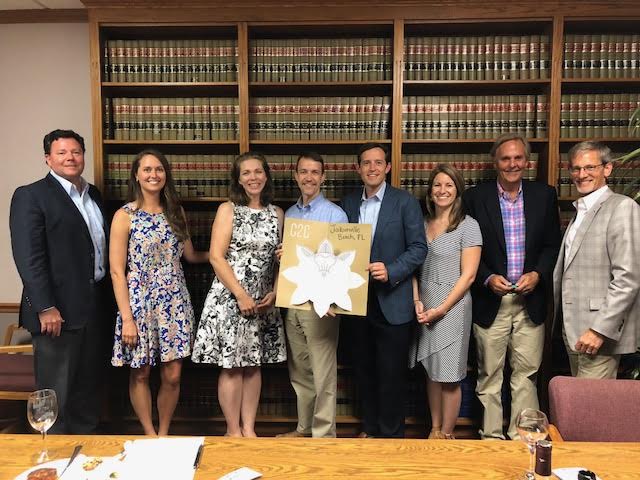Leadership & Character | Jacksonville Beach, FL
A group of Wake Foresters gathered over dinner in Jacksonville Beach, FL on July 17, 2018 to discuss Leadership & Character.
Overview and highlights of our Call to Conversation:
Our evening started by learning more about each other and about occasions when we’ve seen character, either mundane or monumental. Each example seamlessly wove into the next, as we learned about standout students, a fellow church goer, an author, professional golfers, a commanding officer and even someone who started a movement by mowing lawns for free.
The conversation developed around the idea of strong character and its ability to influence others. We discussed whether a display of character comes from our background, personal experience or something inherent within us, and after much thought, determined that any of the aforementioned are possible. While the actual motivation is likely different for each person, this is the point where leadership and character collide.
Many of your examples touched on the point that good character doesn’t depend on a person’s status and is often born out of difficulty. I heard this most clearly when listening to your examples of a student who was willing to risk their name/reputation to turn someone in for cheating, an Air Force officer who cared about a person rather than power or rank and an individual who, throughout their fight with cancer, made the most of every moment. During this portion of the conversation, we realized that displays of character and courage are closely related to one another.
We determined that while good character can be inherent, so can bad character, which presents a pull within us as humans. This brought up the idea of developing a bias for action, which ties naturally to Wake Forest’s motto, Pro Humantitate. The support that Wake Forest students have to do something great “for humanity” is palpable at Wake Forest and is present before freshman even arrive on campus. This type of atmosphere can make it easy to do the right thing, which begs the question “how do we make sure this continues after students step away from campus?”

